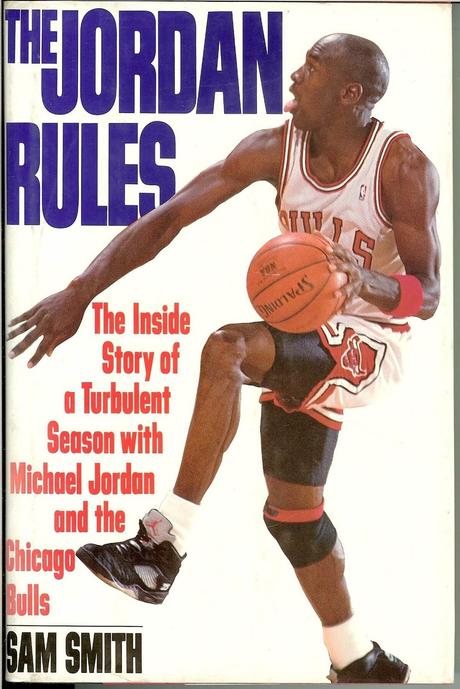“Life is a soldier’s sojourn, a night at an inn.”— Marcus Aurelius

Police Dog, Tess, January 29, 1935 by Sam Hood
Mental Yoga Sunday is a callback to those lazy mornings and afternoons spent reading the newspaper or finishing up a dog eared novel. Days lost in long shadow in a hidden corner full of nothing but quiet and weak wifi. Immerse yourself for a spell in something longer than a text string but shorter than a binge marathon. Here are my favorite long form reads this week.
1
High Pressure Parenting (1843 Magazine)

We invest far more time and money in raising our children than our parents did. Ryan Avent wonders whether we’re doing it in their best interests – or in ours
"In 1997, a few months into my first year at university, I was seized by the conviction that I had made a terrible mistake. I had gone to study engineering at the giant state university in my hometown, one of the many enormous, sturdy, low-cost public universities that helped make America’s middle class the largest, best-educated and richest in the world in the 20th century. I thought I should have done better. In exchanging emails with friends on other, more exclusive campuses I started to get the feeling that I had missed the exit onto the fast track, that at that early stage of adult life I had already doomed myself to anonymous mediocrity.
I don’t have too many regrets about my college education now. I’m an economics writer at The Economist and an author; my alma mater helped prepare me for the career. Yet my worries were not entirely unfounded. When I got into journalism in Washington, DC, I found myself surrounded by Ivy Leaguers, with training, connections and a world view very different from mine. When I moved to The Economist’s main office, in London, the air became more rarefied still. The upper echelons of British professional life are dominated by Oxbridge (elite code for Oxford and Cambridge). At times, competing in the professional world without a degree from one of these places can feel like scaling a sheer wall without a rope: it can be done, but sometimes it seems very hard.
In 2006 I married a graduate of another public university (a slightly snootier one, whose alums refer to it as a “public Ivy”). We have two children of early school age. Every so often we find ourselves talking about what we want for their future and what they might want for themselves, asking ourselves, in so many words: how badly do we want them to go to Harvard? I don’t know if either of my children will have the inclination or the résumé to do so; my position, as a parent, is that Harvard would be lucky to have them. I still have what I imagine must be the naive ideas of a parent of young children, that they will develop their own interests and passions as they grow older: that taking a drill-sergeant approach to learning and to homework would ultimately be counterproductive.
But there is nothing like a conversation with our friends about their own child-rearing habits to make me doubt this approach. My daughter is six. Some of her classmates are woken early by their parents to bone up on maths and reading. Many of them have full after-school schedules. They attend school in Arlington, Virginia, home to one of the best public-school systems in America. Yet many worry that is not enough, and plot their children’s route to Thomas Jefferson, Northern Virginia’s highly selective magnet high school, or to the region’s tony private schools: funnels to America’s top universities and elite society, attended by the offspring of the rich and powerful.
Listening to them I think our approach is the right one. But I also feel a tremor of panic, the smallest concern that my children may be missing the slip-road onto the highway of opportunity: an echo of the fear I felt in my sweltering freshman dorm room 19 years ago." - FULL ARTICLE
2
What If The Internet Stopped Working For A Day? (BBC Future)
"Jeff Hancock likes to give his Stanford University students weekend assignments that let them experience concepts discussed in class for themselves. Before 2008, he would sometimes challenge his students to stay off the internet for 48 hours and then discuss how it affected them. But when Hancock returned to work in 2009, after a year-long sabbatical, things had changed.
“When I tried to introduce the task, there was a class revolt,” says Hancock, who studies the psychological and social processes involved in online communication. “The students emphatically said the assignment was impossible and unfair.”

They argued that going offline even for a weekend would prevent them from completing work in other classes, ruin their social lives, and make their friends and family worry that something terrible had happened to them. Hancock had to concede and cancelled the activity – and he’s never attempted it again. “That was 2009, and now with mobile as present as it is, I don’t even know what students would do if I asked them to do that,” he says. “They’d probably report me to the university president." - FULL ARTICLE
3
‘The Jordan Rules’ Was the Mother of All Woj Bombs (The Ringer)

Remembering Sam Smith’s scandalous, detail-laced, seemingly impossible chronicle of Michael Jordan and the Chicago Bulls in the early 1990s, 25 years later
"...Jordan seethes with embarrassment. “I hate when I have to read that in the papers the next day, that I couldn’t do something,” he tells another player. The next day, at practice in Seattle, Jordan shows up Jackson by refusing to take more than a shot or two. “Michael wouldn’t say a word to anyone,” Horace Grant says.
The same night — such is the granular depth of The Jordan Rules — Jordan goes to another nightclub and runs into a motormouth Sonics rookie named Gary Payton. “I’ve got my millions and I’m buying my Ferraris and Testarossas, too,” Payton brags.
“No problem,” Jordan replies. “I get them for free.” - FULL ARTICLE
4
Twelve Seconds of Gunfire (The Washington Post)
In tiny Townville, S.C., first-graders are haunted by what they survived — and lost — on a school playground
"Recess had finally started, so Ava Olsen picked up her chocolate cupcake, then headed outside toward the swings. And that’s when the 7-year-old saw the gun.
It was black and in the hand of someone the first-graders on the playground would later describe as a thin, towering figure with wispy blond hair and angry eyes. Dressed in dark clothes and a baseball cap, he had just driven up in a Dodge Ram, jumping out of the pickup as it rolled into the chain-link fence that surrounded the play area. It was 1:41 on a balmy, blue-sky afternoon in late September, and Ava’s class was just emerging from an open door directly in front of him to join the other kids already outside. At first, a few of them assumed he had come to help with something or say hello.
Then he pulled the trigger.
“I hate my life,” the children heard him scream in the same moment he added Townville Elementary to the long list of American schools redefined by a shooting." - FULL ARTICLE
5A
Mislabeled (Lapham's Quarterly)
Things discovered are not always things correctly named.
5B
No Bad Ideas (Lapham's Quarterly)
Patents from America’s past and present.


